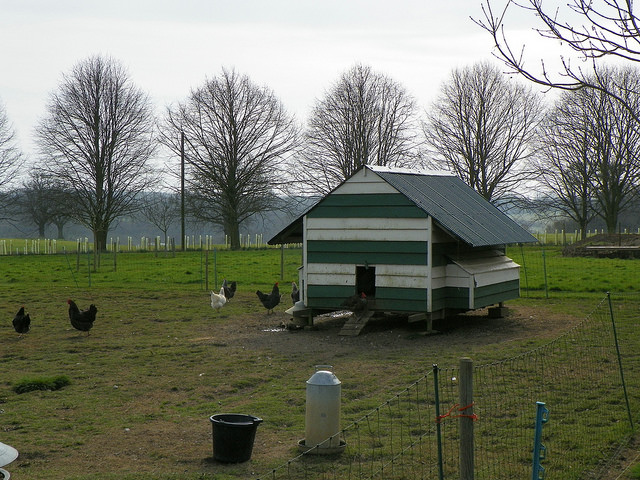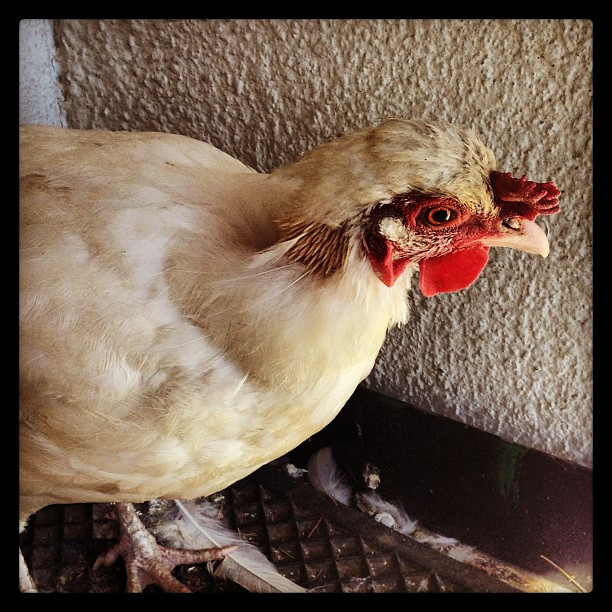
by Melissa Caughey of Tilly’s Nest
If you are like me and purchased baby chicks this past spring, soon enough your pullets will begin to lay their first eggs. For first time chicken keepers, sometimes the anticipation alone can make you feel like a kid on Christmas morning. The best part, is that feeling of discovering freshly laid eggs in the nesting box never goes away as long as you keep chickens. Today’s post is all about preparing your flock and coop for the arrival of eggs.
Home Sweet Home

Photo Credit: Chicken Coop
- Be sure that you have plenty of nesting boxes for your flock. There should be one box for every four hens that you keep.
- The laying hen should feel safe when laying eggs.
- You will discover that there will be a favorite nesting box among the flock.
- Natural light helps to stimulate egg laying. Windows work wonders.
- Tidy up the nesting boxes each morning and discourage hens from sleeping in the boxes. This helps to keep your eggs clean.
Encouraging Egg Laying

Photo Credit: Coop and Brooder in one
- Be sure all female chickens over the age of 18 weeks are on layer feed. This should be at least 16% or more protein.
- Provide a free source of calcium for your hens. Some recycle eggshells or provide oyster shells in a small mounted dish.
- Place a few wooden dummy eggs or golf balls in the nesting boxes to entice your hens to lay in the nesting boxes.
- Watch for eggs laid in the wrong places, such as the corner of the run.
Aging Hens

Photo Credit: Molting hen
- During molting, sometimes hens will stop laying eggs. This is because they are putting their protein resources into making feathers. This is normal.
- Hens will lay the most eggs during their first two years of life.
- When hens are around 4 years of age, the regularity of egg laying ceases. They can also stop laying eggs completely.
Egg Care

Photo Credit: Eggs in nesting box with plastic liner.
- Harvest your eggs frequently to help prevent egg eating.
- Eggs should not be washed. A protective coating called the “bloom” on the egg’s shell naturally keeps bacteria and other organisms from entering the egg. It also keeps the eggs fresher.
- Fresh unwashed eggs can be left on the counter top for a few days as most do in Europe.
- Once eggs are refrigerated then they must remain refrigerated.
- All eggs and chickens carry the risk of containing salmonella.
More information about the top 10 reasons for a decline in egg production.
About the author: Melissa Caughey is a backyard chicken keeper, beekeeper, gardener, and cook who pens the award winning blog, Tilly’s Nest. She lives on Cape Cod, Massachusetts with her family of four and her Miniature Schnauzer. She regularly writes for HGTV Gardens, Community Chickens, Grit magazine, and contributes to Country Living Magazine. Her blog was recently named one of Better Homes and Gardens Top 10 Gardening Blogs. Melissa’s first book, A Kid’s Guide to Keeping Chickens, will be available in Spring 2015.













1 Comment
I got my first egg today! So excited, BUT I found it at the top of the ladder into the coop on hardwire cloth as the coop door was shut s she laid her egg in a small contained high spot….my nesting boxes are located in the run as the coop is 5′ off ground in our tree-fort (now coop) and I”d prefer they lay below so I can gather them with out climbing into the treefort.
I put the egg in one of the 4 nesting boxes (I have 2 RedStar pellets just 20 weeks tomorrow). I will be watching as my son thinks he saw a hen go into the coop today; but I told him I had closed the coop door to keep them from getting in the coop. Some of the girls aren’t the best at getting out of the coop door/ladder setup we have and got stuck up in the coop. So this girl tried to get into the coop and laid her egg in a 6″ space on hardwire cloth